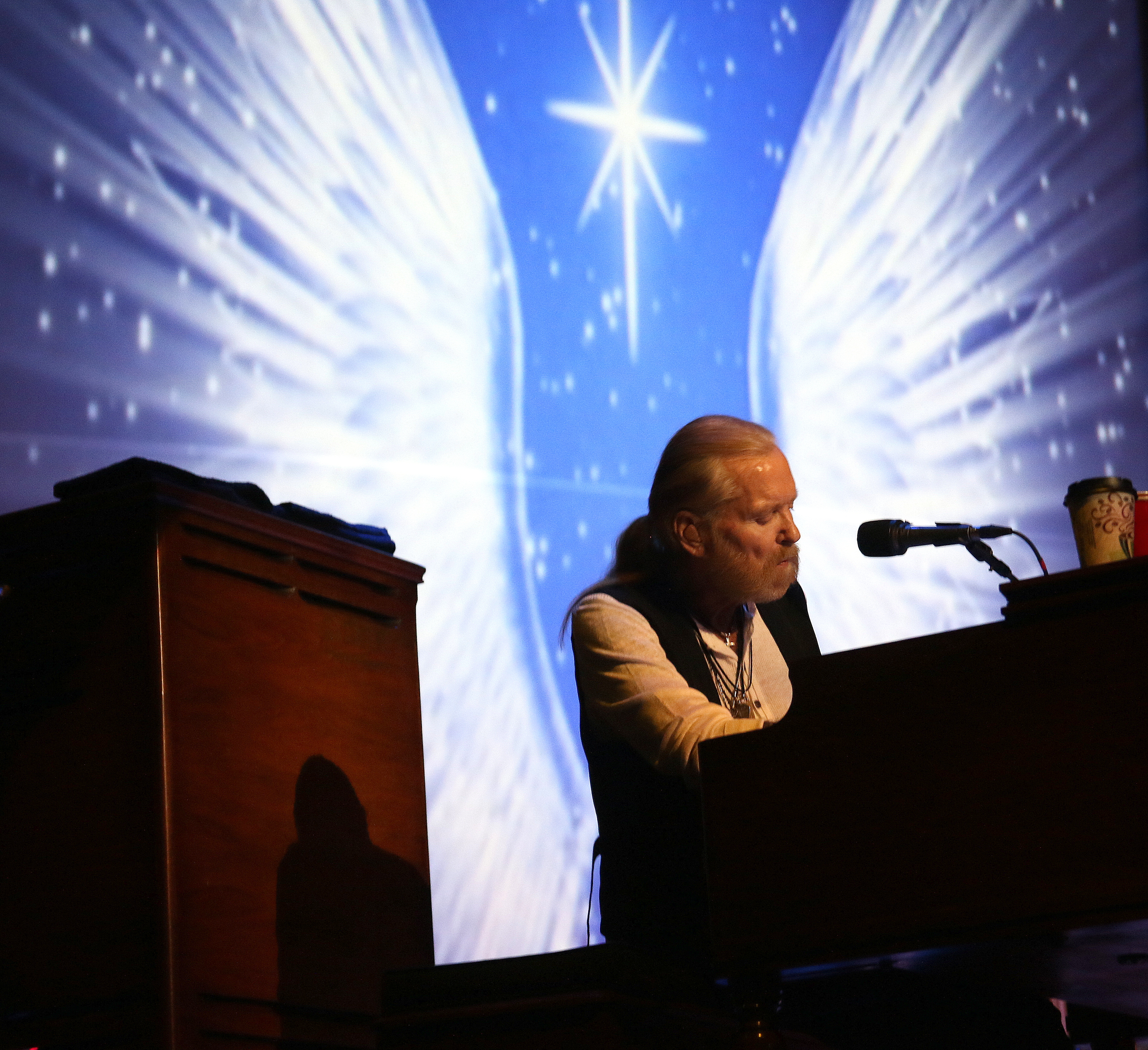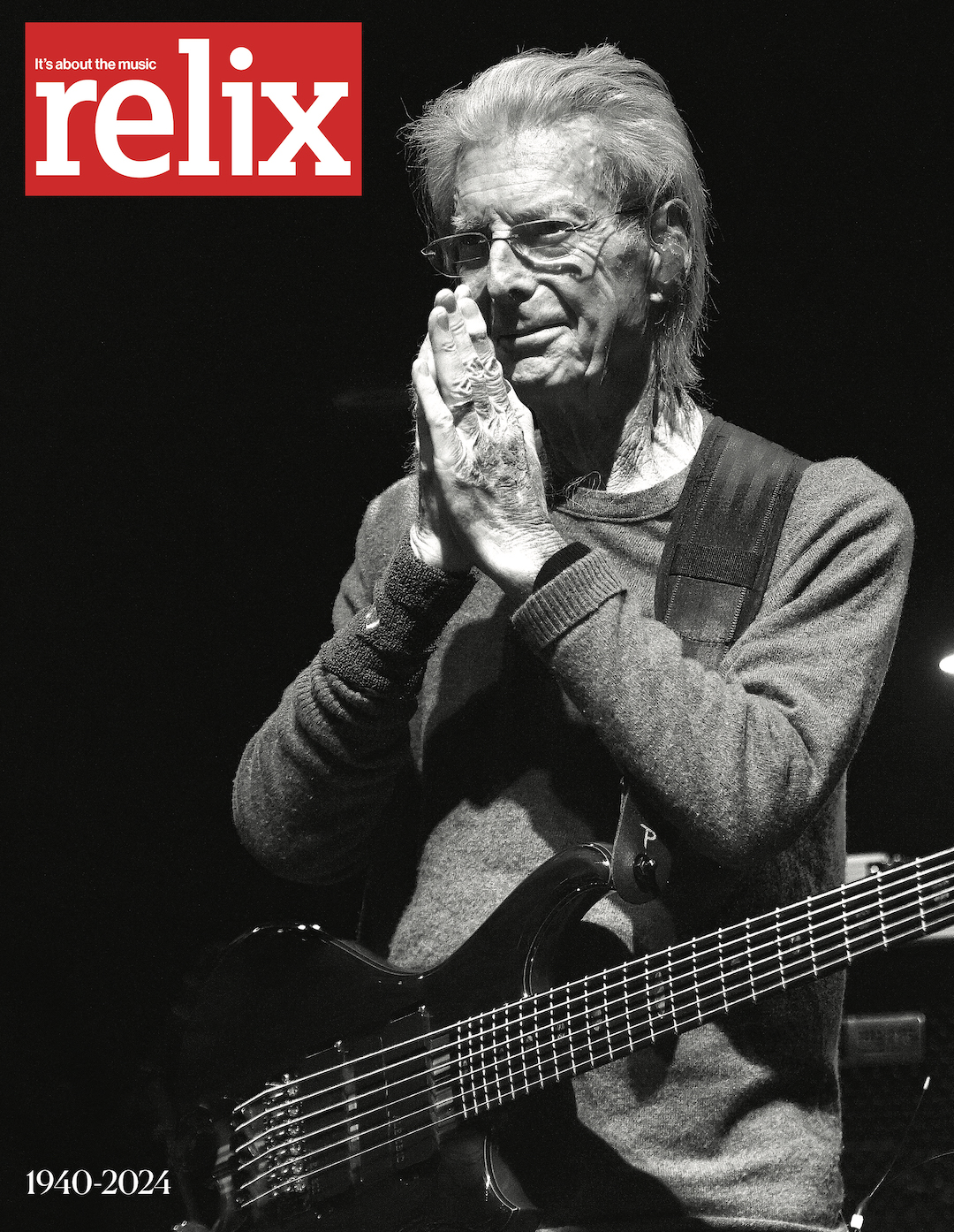Gregg Allman 1947-2017

Photo by John Patrick Gatta
Gregg Allman passed away on Saturday. He was 69. The official cause of death is unknown at this time, but the legendary Allman Brothers Band singer, organist and songwriter had recently canceled all his 2017 dates due to health concerns.
A statement posted on Allman’s website says:
It is with deep sadness that we announce that Gregg Allman, a founding member of The Allman Brothers Band, passed away peacefully at his home in Savannah, Georgia.
Gregg struggled with many health issues over the past several years. During that time, Gregg considered being on the road playing music with his brothers and solo band for his beloved fans, essential medicine for his soul. Playing music lifted him up and kept him going during the toughest of times.
Gregg’s longtime manager and close friend, Michael Lehman said, “I have lost a dear friend and the world has lost a brilliant pioneer in music. He was a kind and gentle soul with the best laugh I ever heard. His love for his family and bandmates was passionate as was the love he had for his extraordinary fans. Gregg was an incredible partner and an even better friend. We will all miss him.”
Gregg is survived by his wife, Shannon Allman, his children, Devon, Elijah Blue, Delilah Island Kurtom and Layla Brooklyn Allman, three grandchildren, his niece, Galadrielle Allman, lifelong friend Chank Middleton, and a large extended family. The family will release a statement soon, but for now ask for privacy during this very difficult time.
Gregory LeNoir Allman was born on Dec. 8, 1947—18 months after his older brother and future Allman Brothers Band leader Duane. The Allmans spent their childhood in Nashville and, later, in Daytona Beach, Fla., where they were raised by their mother Geraldine after their father was tragically killed in 1949 by a hitchhiker.
The brothers occasionally jammed with future Gregg Allman Band member Floyd Miles and formed their first groups, the R&B-influenced The Escorts and its successor the Allman Joys, in the mid-1960s. By 1967, they had moved cross-country to Los Angeles in search of fame and released a pair of largely forgotten albums on Liberty Records as the Hour Glass. Duane eventually returned to the Southeast where he became a studio musician in Muscle Shoals, Ala., playing with the likes of King Curtis, Aretha Franklin, Wilson Pickett and others at FAME Studios. Gregg stayed in California to complete their contract, but relocated to Jacksonville when his brother called him to join the group he was putting together, the Allman Brothers Band.
On March 26, 1969, Allman had his first jam session with the initial incarnation of the group, which included guitarist Duane, guitarist Dickey Betts, drummer Jai Johanny “Jaimoe” Johanson, bassist Berry Oakley and drummer Butch Trucks. Though originally a guitarist, Allman switched to the organ as his brother quickly developed into a guitar virtuoso. Allman also served as the Allman Brothers Band’s lead singer and primary songwriter; his soulful, bluesy voice has remained one of the most iconic in rock-and-roll history for over 45 years.
Gregg Allman’s classic original material and prophetic voice defined their group’s early albums as much as his brother’s soaring slide guitar work. Their 1969 debut and 1970’s Idlewild South included generational classics like “Midnight Rider,” “Whipping Post” and “Dreams.” In concert, the Allman Brothers developed into one of the greatest improvisational rock bands off all time and were architects of the jamband scene, thanks to their blend of blues, rock, soul, R&B and country. Allman’s tasty organ work is captured on the 1971 iconic release At Fillmore East and countless live recordings.
The Allman Brothers Band were dealt back-to-back blows with the deaths of Duane in 1971 and Oakley a year later. The band continued under the direction of Betts and Allman, a reluctant leader who would remain their primary voice for decades. Their 1972 album Eat a Peach contained Allman’s tender “Melissa,” a favorite of Duane’s that Gregg performed as his brother’s funeral.
Against all the odds, the Allman Brothers Band rebounded with new bassist Lamar Williams and pianist Chuck Leavell and scored their biggest break yet with 1973’s Brothers and Sisters, which contained Betts’ country-inspired singles “Ramblin’ Man” and “Jessica.” Though Gregg struggled with his brother’s passing and Betts emerged as the band’s creative force, The Allman Brothers became stadium stars and helped popularize the Southern rock genre. Gregg also launched a solo career with his more singer-songwriter and R&B-oriented Laid Back album, which contained a new version of “Midnight Rider” and a reimagining of his former roommate Jackson Browne’s “These Days.”
The Allman Brothers hit on hard times, however. Personality clashes and an inner-band struggle over the leadership role started breaking the group apart, and the Allmans began indulging in the rock-star excesses of drugs, celebrity relationships and fast-paced lifestyles that included buying a plane. The band’s music suffered and Allman moved to Los Angeles, marrying Cher in 1975. He recorded his parts on the 1975 lackluster Win, Lose or Draw album away from the group. The final straw came in 1976, when Allman testified against Allman Brothers security guard Scooter Herring, who was convicted on five counts of conspiracy to distribute cocaine and received a 75-year prison sentence.
The Allman Brothers Band officially split and Gregg formed a solo group and continued to tour. He also recorded Two the Hard Way with Cher and immersed himself in the Hollywood lifestyle. After a few years apart, the Allman Brothers Band reunited in 1978 with new guitarist Dan Toler and bassist David Goldflies, and released three albums during the next five years. But as New Wave and MTV changed the musical landscape, the Brothers’ blues-rock sound fell out of style. They disbanded once again in 1982.
The mid-1980s were lean times for Allman, who toured clubs with a new solo band that included Dan Toler and his brother Frankie (who also briefly played with the ABB). An Allman Brothers reunion started gaining traction when Allman and Betts mounted a co-headlining tour that led to a few benefit appearances by the entire band in 1986. Allman had a surprise comeback the next year with the new solo album I’m No Angel and its crossover title track. He followed that LP with 1988’s Just Before the Bullets Fly, featuring a song of the same name written by guitarist Warren Haynes. Allman also pursued a parallel acting career and appeared in the award-winning film Rush.
In 1989, the Allman Brothers Band officially reunited for a massive 20th anniversary tour with Haynes, bassist Allen Woody and keyboardist Johnny Neel augmenting the surviving founding members. Thanks to the new format “classic-rock radio” and a comprehensive box set retrospective, the band found a new following. The Brothers returned to the studio too, releasing a series of new albums including Seven Turns (1990), Shades of Two Worlds (1991) and Where It All Begins (1994) as well as a string of live releases. The group also started hosting annual guest-heavy residencies at New York’s Beacon Theatre in 1992; the Allman Brothers Band would go on to perform a record-setting 238 concerts at the venue, including their final show in 2014.
After showing up at the band’s 1995 Rock & Roll Hall of Fame induction drunk, Allman checked himself into rehab and sobered up. In the late-1990s, the Allman Brothers Band re-established their reputation as a genre-defining live act; the band inherited a legion of fans from the Dead following Jerry Garcia’s passing and connected with a new generation of jamband musicians and fans. Their setlists became more dynamic too, and the Allman Brothers started unearthing chestnuts shelved since the 1970s.
Allman maintained a solo career throughout, using his concerts and albums to showcase a more groove-oriented sound and his rhythmic guitar work. He also brought Trucks’ nephew Derek on the road with his group and Derek officially joined the Allman Brothers in 1999.
There were rocky times, ahead though. Allman and Betts became estranged in the late-1990s. The Brothers suspended Betts from the band until he dealt with his drinking problems and, shortly after, Betts parted ways with the group amid a bitter a bitter court case in 2000.
The Allman Brothers Band not only moved on, but also settled on the most stable lineup of their career with Allman, Jaimoe, Haynes, Butch Trucks, Derek Trucks, bassist Oteil Burbridge and percussionist Marc Quiñones. They released one final album, 2003’s Hittin the Note, and regularly packed sheds until they retired from the run after another Beacon blowout in 2014. The band’s 2009 40th anniversary celebration, is remembered for its big-name guests and diverse setlists, featuring appearances by Eric Clapton, Levon Helm, Phil Lesh, Bob Weir, Kid Rock and Leavell, as well as members of ZZ Top, Phish, Widespread Panic and many others.
Allman struggled with health issues in his later days. He was diagnosed with Hepatitis C in 1999 and underwent a liver transplant in 2010, causing him to sit out some shows and cancel others. After the Allman Brothers veered off the road, he devoted his attention to his solo group and was working on Southern Blood, his first album since 2011’s rootsy Low Country Blues, at the time of his passing. Allman was also able to take stock of his career, thanks to his 2012 memoir, My Cross to Bear, and the 2014 all-star tribute, All My Friends.
Earlier this year, Allman abruptly cancelled his entire 2017 tour schedule. Fittingly, his final concert took place in Atlanta, a city that helped foster his storied career, this past October at the Laid Back festival.
Allman’s family suggests that tributes to Gregg can be made to the Gregg Allman Scholarship Fund at The University of Georgia or the Allman/Lehman Endowed Scholarship at Syracuse University.



















